I watched the morning light move over the towers of Notre Dame in Paris transforming its cold grey stone to warm umber and listened to the beating of my heart. Was this the day that beating would stop? The seed of fear I carried within had over the months grown like a black pearl, and at night alone in my bed, husband and lover gone, I felt it displacing my heart and compressing my lungs. During the moment before sleep darkness closed around me and became a prelude to death.
During the past two days wandering the streets of Paris I had been so overcome by the beauty of this city, this living work of art, that I had forgotten the fear. Now, transfixed by the transcendent morning light, the ancient cathedral, and feeling the life of the city around me, the fear returned. I wept to think I could have lived my life and missed all of this.
A tour group surrounded me, all snapping photos of the ancient cathedral. In the midst of this crowd I felt alone, as if only I were feeling the morning breeze and smelling the scent of water rising from the Seine. My knees went weak and I trembled all over. For a moment I thought this might be a relapse. Then I realized that it was emotion sweeping through me, from being in this city that I had so long wanted to experience. Why had I waited so long, almost too long, to come here? Whatever the reason for my almost life long delay, I wasn’t going to make a spectacle of myself like one of those people who succumb to the Stendhal Syndrome and faint at the sight of overwhelming beauty.
Pull yourself together Sandra. Yes, you’re having a reaction to this city. It’s almost unbearably beautiful, the light, the narrow streets and graceful architecture and just the essence of this so very alive city. It’s as I imagined it, but more alive, more gorgeous, more real, like a painting come to life and I’m in it.
I took a deep breath to steady myself and realized I was perspiring and that the weakness wasn’t entirely due to emotion. Maybe I was pushing myself too much. Only three weeks since I left the hospital. Could I really do what I had started out to do? Maybe I should just stay here. I could spend the rest of my life, whatever that might amount to, in this city and never get to know all of it. Why hadn’t I come here after college as I could have? Everything would have been different.
I introduced myself as Logan Montana, my work name, stage name, name by which I now lived, and asked if she was all right. Sandra Livingston shook hands weakly, her hand thin and cold in mine.
“Oh yes,” she said. “I’m fine, just fine.”
“Are you sure?”
“Logan, really, I’m as fine as I can be.”
After chatting for a few minutes we wandered away from the crowd near the doors of the cathedral to a wrought iron bench. It was early spring, morning sky like the inside of a pearl, scent of damp pavement from street cleaners, buzz of motor scooters, women in bright dresses and high heels tapping along the sidewalk.
Sandra dropped her small backpack on the bench and I noticed a seashell attached to it. We sat in the shade of Napoleon’s plane trees and made small talk. She was from San Rafael California. I also was from California. It was her first visit to France. I had been here many times. Yes, Paris is even more beautiful than could be imagined. She studied my face as we chatted, deciding whether to trust me. Then she told me her story.
Sandra had lost her husband, John, to a stroke two years ago, a shock to everyone. He had been only thirty-six. Randy, her ten year-old-son, had been killed in an auto accident while she was undergoing chemotherapy a few months after John’s death. The chemo had been pronounced successful, but there were doubts. The cancer might return. Nothing was certain.
A friend had given her a book while she was in the hospital and she read about El Camino de Santiago de Compostela, The Road of Saint James that led to his cathedral in the city of Compostela in Spain. Sandra had been intrigued by the idea of a centuries old pilgrim’s path that had fallen into disuse but was now renewed and followed by thousands each year. Many of the pilgrims were not religious but motivated by personal reasons. Surrounded by tubes and monitors, pierced by IVs, she had decided to set out for Compostela when and if she was able.
“In medieval times,” Sandra said, “the pious believed the path of Saint James led to certain salvation. If they completed their pilgrimage they would be forgiven their sins and could start their lives fresh, free of their past.”
“And do you have some great sin that needs forgiving?” I asked, with a smile.
The light that came to her eyes while talking about the Camino faded and she looked down and then up into my eyes, “Don’t we all?”
Sandra seemed to see inside of me and I flushed with shame. Then she looked down again and I realized she was simply answering my question with a universal question, one I chose to ignore.
“So you’re Catholic?” I asked.
“No,” a slight head shake. “When I was a girl. Not now. Not for many years.”
“A return to childhood faith? You’re religious?”
“Not at all. Are you?” Catching my eyes again, a small challenge.
“Hardly. But I’m not walking to Spain.”
“So you just cruise Notre Dame to pick up stray women,” this with a touch of the devil in her smile.
“Actually, I was on my way to work. Maybe I should get going.” I moved as if to get up.
She put her hand on my arm. “Oh stop. I was just poking at you a little.”
“So tell me, why are you doing this?”
“I will not sit and worry and wait for tests. I’ve lost most of the people I love. Losing John, and then Randy… He was so young. My parents are gone, my sister Susan…Well, we never see each other or even talk. After the insurance ran out, our home went for medical bills, along with all of our savings. I have nothing left to lose and no one to take care of except myself. Really, the question is, why not?”
Like many women, Sandra had spent much of her life caring for others. The assumption that this was understood to be a woman’s life was unspoken, but there. She told me there were many roads leading to Compostela and that each person’s path begins at their own doorstep. In a sense Sandra’s pilgrimage had started at her home and brought her here to Notre Dame. Most pilgrims began their walk further south, only a few started here, on the compass rose of kilometer zero – the center of Paris. From this point she intended to walk a thousand miles to the cathedral of Saint James and possibly even further to Cape Finnestere, a point on the coast of Spain the ancients believed to be the end of the world.
Her blue eyes were soft and frighteningly vulnerable, her eyelids almost translucent. Could she possibly make it, walking for months in all kinds of weather, through frozen mountain passes, across sun-hammered plains?
“Why must you walk? Surely there are trains or buses to Compostela.”
Sandra patted her forehead with a white linen handkerchief edged with lace, “It’s not just the destination. It’s the road. It has to be the road. I have to walk it. I know it doesn’t make sense but something is pulling me towards the Camino. I dream about it night after night.”
Her eyes went inward. “I guess it’s become an obsession. After what I’ve been through it would be stupid to talk about magic or miracles. But in my dreams Compostela is a magical city washed in golden light at the end of the world and it can only be reached by traveling the Camino on foot. There’s also something…I don’t know, intriguing I guess, about Cape Finnestere, the notion of it once being the end of the known world, a jumping off point to the unknown. Maybe because I’ve been on the edge of the unknown.”
“But what do you expect to find?”
Sandra ignored my question and told me about the Camino itself. There were refugios along the way, sometimes in monasteries, more often in ordinary buildings. These hostels were manned by volunteers and provided a place to sleep and simple meals for a small fee, some of them for whatever donation the pilgrim could afford. The refugios were a day’s walk from each other so she would not have to camp and carried only her small pack with essentials and a change of clothing.
Even with the hostels this journey would be a challenge for a person in good health, perhaps an unachievable goal for a woman in her condition.
“Are you sure you can make it Sandra?”
She looked down for a long moment, biting her lip, fiddling with her pack straps. Then she closed one hand into a fist and put it in her lap. “I’ll make it or I’ll die along the way. No matter what you want or wish, death comes when it comes. If it comes to me on the road I’ll be with my husband and son.”
“So you do believe.”
She opened her fist, turned her palm upwards and lifted her chin, “I guess I believe in something.”
Her spirit was strong, but Sandra was emotionally drained by her losses, and her body was weak, wracked by disease and scourged by treatment. I raised some practical issues: minor injuries, blisters, weather, adequate water, finding her way – familiar matters to any long distance walker – and again, the more serious matter, her physical stamina.
She shook her head slightly but firmly, putting aside my concerns, “If I’m supposed to complete this pilgrimage it will all work out and the strength will come to me. If not…” she shrugged. “And I won’t get lost. I have this to guide me,” turning her pack to display the seashell. “It’s a scallop shell, the symbol of the Camino. There are signs along the path with the shell pointing the way.”
Stories about miraculous healing are not part of the Saint James legend. But Sandra wasn’t seeking a miracle cure.
“I don’t expect the heavens to open,” she said, “or the cancer I might still be carrying to magically evaporate. It’s just… I need a fresh start.”
Sandra thought that putting one foot in front of the other for months and miles could be a form of meditation that would bring her strength and courage, and at the end of the road she might find a purpose for the rest of her life. If her life were to end along the way, that end would be better than dying in a hospital hooked up to tubes and wires.
We talked for an hour or so with little held back, the way travelers who meet on the road sometimes do. We talked of what ifs, might have beens, family and work, wishes and regrets. She told me about her husband and family and their former comfortable life together, the country club and big house and how it all disappeared in a tsunami of pain and medical bills. She told me childhood stories: her dog named Brownie who slept in her bed, the lemon tree in her yard she climbed to hide from everyone, her red bicycle with a bell on the handlebar that pinched her finger when she rang it. It’s dangerous when a woman’s childhood stories make you smile and you find yourself leaning towards her. You could slip right over the edge.
I told her how I had accidentally stumbled into the world of high fashion and had built an idea and a chance meeting into an international menswear company. And then sold it.
“You regret selling. Don’t you?”
“I’ll be glad to get the money.”
“What has the money cost you?”
He sat silent for a few minutes.
“Look, I’m just a suburban housewife who worked as an illustrator for a few years after college. I don’t know much about the fashion business and even less about international business. But I can see when someone’s unhappy.”
He looked at me, then away to the streets of this magical city, and said, “Isn’t Paris lovely this time of year?”
I laughed at his clumsy attempt to move away from an uncomfortable topic, “Okay, I’ll drop it.”
After a moment he laughed with me.
“Oh look,” I said, pointing at a balustrade of the cathedral. While we had been talking the sky had become overcast and gray. Now sunshine broke through and again transformed the cold stone to soft gold, the light and stone seeming to transfuse into one another. The tower bells began to ring. A breeze swept through the open plaza rustling the leaves above us, a wren fluttered to ground at our feet and time seemed suspended. His eyes caught mine and for that narrow slice of time we were joined in perfect communion, the changing light, the wind in the trees, the dust colored bird, the bell’s lingering reverberation, all part of a fragile crystalline moment. Then a horn honked, tires screeched and the world rushed in.
“Don’t say good bye,” she said with that slight head shake and a warm smile. “Say, ultreya.”
“You speak Spanish?” Ultreya in Spanish means onward.
“Only a little. Ultreya is a special word that pilgrims use to encourage each other when the going is hard. When they’re frightened of a mountain pass, or tired, or footsore and thinking about giving up they say to one another, ‘Ultreya.’ Most don’t walk alone you know.”
She tilted her head forward and looked up from under her brows. Her eyes snapped with a trace of mischief and she showed me a little more of the woman she had once been, the woman still inside, “Maybe I’ll meet someone to walk with along the way.” That devilish smile again.
I was struck silent for a moment and imagined myself walking with her through Spanish hills and remembered times past when those hills were home to all that I had loved. I had work to do, but none I wanted to do. They had bought more than I had known that I sold. Drop everything? Go with her? The Paris show and the fashion world could go on without me. But there were other matters that held me back. There was Diane.
I let go of her hand, “I’m sure you will.”
Her smile faded and she looked towards the street. She turned away, took a step, then another. I watched her walk across the plaza. She reached the curb and I called out to her, “Ultreya.”
Looking over her shoulder she gave me a last small smile, waved, and then looking ahead stepped into the street moving carefully between cars and scooters, a little unsteady on her feet but going forward with her head up and the heart of a lion.
My own heart swelled as she walked away and for that moment I loved her a little. I thought of calling out to her, catching up and going with her. But I didn’t. Where did he go, that younger me who would have gone with her, with the moment? A door had opened, and closed. And I returned to my meetings and measured days.
Business kept me in Paris and Sandra remained in my thoughts. During a restless night I dreamed of her and in my dream confused her with another fair haired woman named Sandra, a woman I had loved in my youth as only a young man can love, an older woman who discarded me along with her sandals and sunscreen, as she would any summer toy when the season was over and it was time to return to her husband.
Frantic preparations for the runway show went on around me. My attention drifted. In empty moments I closed my eyes and saw Sandra walking through the deep green heart of France and across the Spanish plain, getting stronger step by step and coming at last to her magical city, Santiago de Compostela.

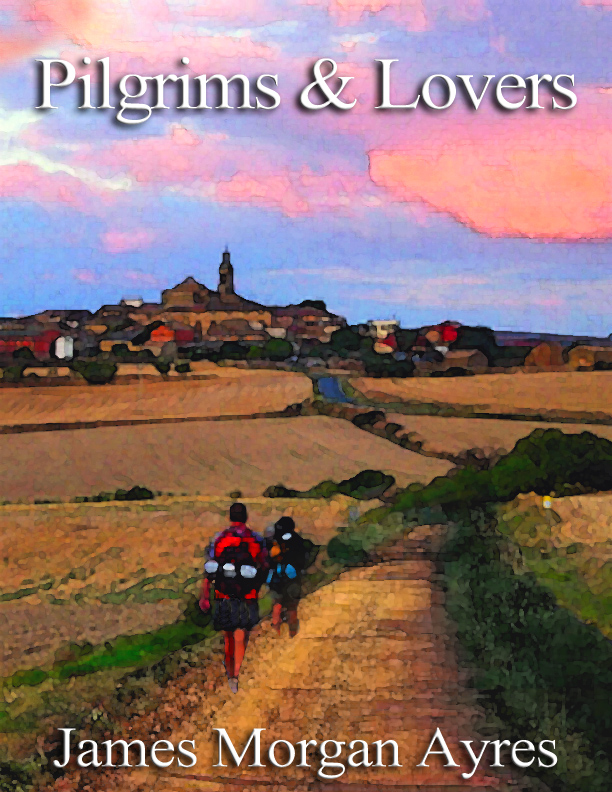
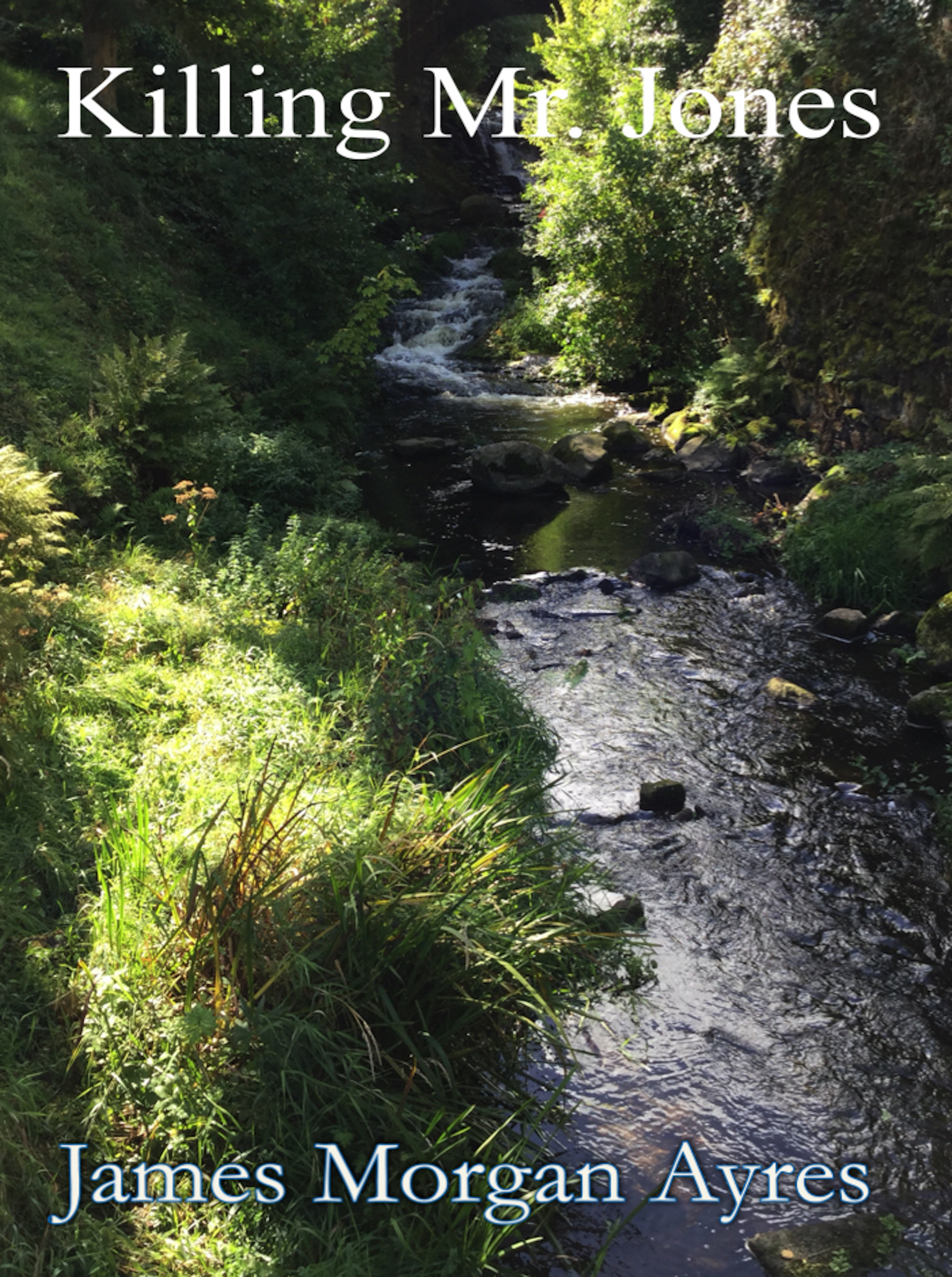 Sun, Apr 5, 2020: Killing Mr. Jones
Sun, Apr 5, 2020: Killing Mr. Jones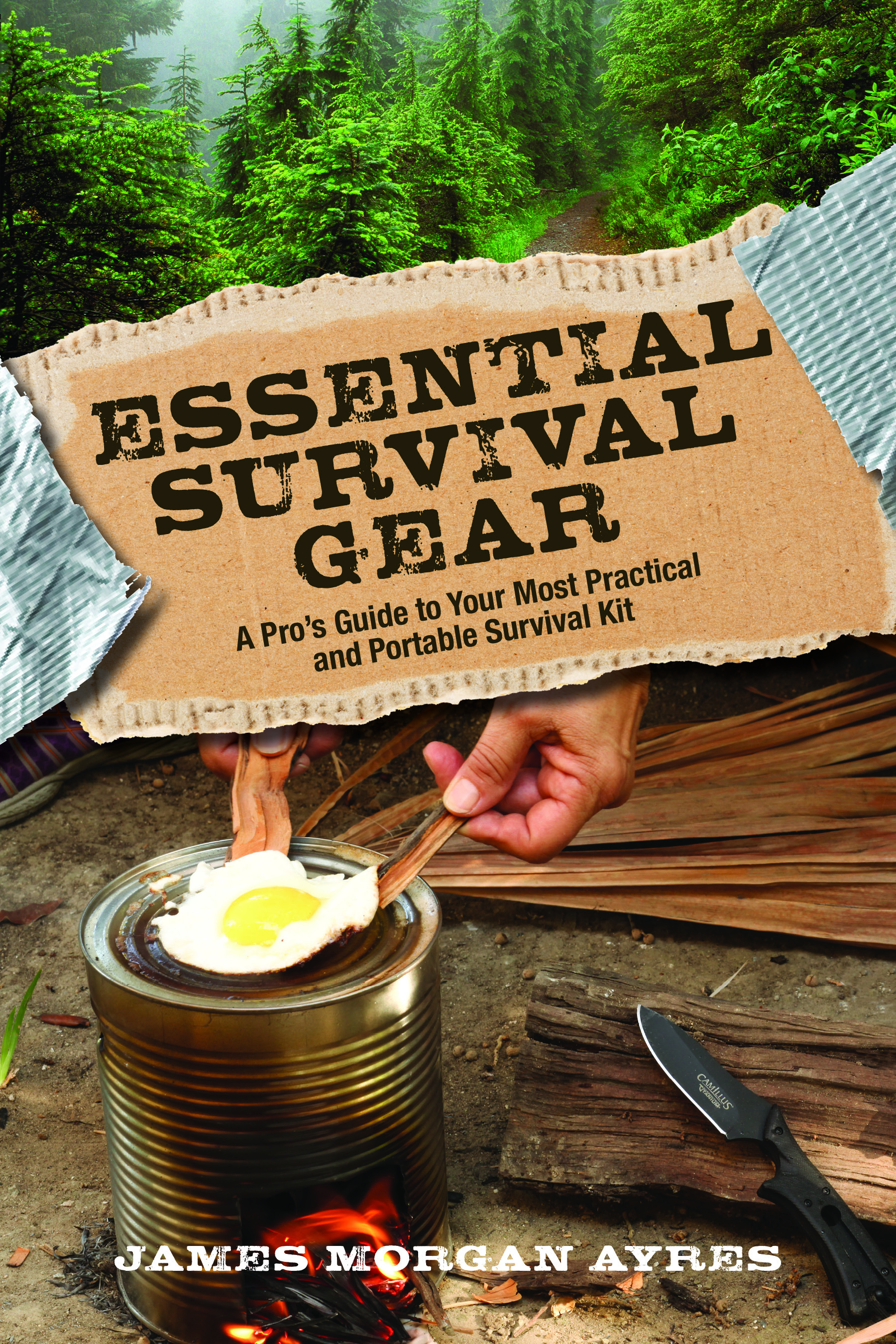 Wed, Apr 1, 2020: On Hoarding
Wed, Apr 1, 2020: On Hoarding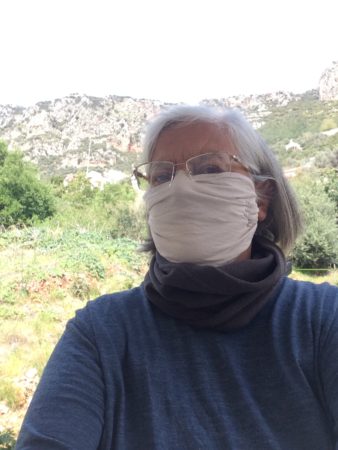 Mon, Mar 30, 2020: Masks Save Lives – Covid-19
Mon, Mar 30, 2020: Masks Save Lives – Covid-19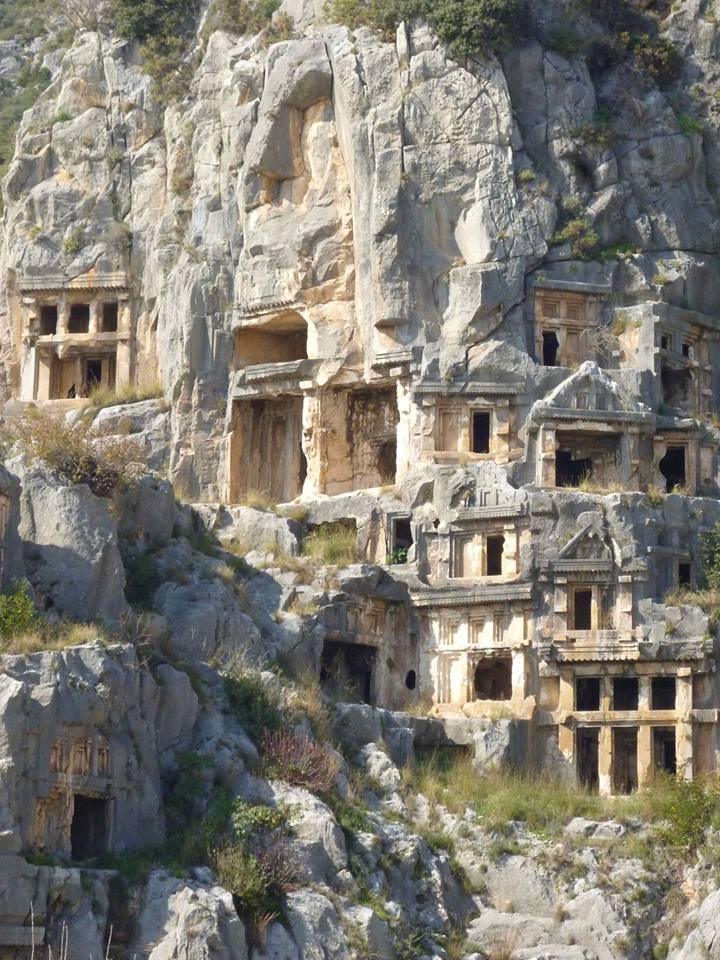 Sun, Mar 29, 2020: Visions of Apocalypse
Sun, Mar 29, 2020: Visions of Apocalypse Fri, Aug 23, 2019: Hijacked Twitter
Fri, Aug 23, 2019: Hijacked Twitter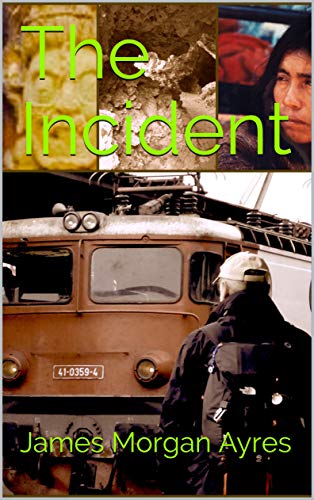 Sun, Aug 18, 2019: The Incident
Sun, Aug 18, 2019: The Incident Sat, Aug 10, 2019: Seas and Oceans Without End
Sat, Aug 10, 2019: Seas and Oceans Without End
Thanks james,enjoyed the first chapters,there was a tv reality program where a group of celebrities did the walk,very entertaining,I presume it was the same walk as your writing about,being show people they got plenty of help,will look forward to the complete book.Best wishes to you and mary lou.xxx
Hi Tom,
Glad you enjoyed it. Thanks for taking the time to read and comment.
I hope you and Valda are doing well and that somehow our paths cross again soon.
Be well my friends,
James
I have found the beginning chapters very intriguing and
familiar, I can almost taste the paella and sangria. I am anxious to learn more about Logan’s discovery of his life
and meeting with Sandra. Please complete your
story!!! I hope it will be soon.
Cheryl,
Thanks for your comments. I’m working on Pilgrims now and should have the book completed in a few months. Paella, sangria? Logan and Sandra haven’t yet arrived in Spain. But it sounds as if you have 🙂
Cheers,
Morgan
What a journey! The vistas are beautiful, and Logan has not even begun his pilgrimage with Sandra! Europe – Logan’s Europe – is as compelling and complex a character as Logan himself. There’s a lot of history and culture woven into the fabric of the story, and more than a little insight into the international fashion world. I’m very curious about how the relationship between Logan and Sandra will play out.
Robin,
Thanks for your comments. Interesting perspective, I hadn’t thought of Europe as a character, until now. Very insightful of you. Maybe Europe is a character to me in some subterranean level of what passes for my mind. I’ve spent a good bit of my life here, and after being elsewhere returning to Europe is always like returning to a lover who has stolen my heart.
Cheers,
Morgan
Kory,
Thanks for your comments. I’m glad you enjoyed the opening of ‘Pilgrims,’ and will let you know when the complete book is available.
Best regards,
Morgan
This was a great read. I really like how the story sort of has this path, but trails off for a while and then somehow, returns back to that same path to set foot again. All the while this is going on you don’t even notice, as if it were a natural walk of life in text itself.
I would like nothing more than to continue reading. I really want to know this path of the pilgrim, and find out how Logan’s meeting with Sandra goes. Ultimately, I want to know what Logan feels when he gets to ‘the end’. I thought to myself when he had dreamed an out of body experience- he is finally learning to let go… I can’t wait for the rest!!!
Sorry, i meant to write James, slip of the keyboard 🙂
No worries 🙂 I’ve worked as Logan also and will still answer to it. Although during my days in the garment biz I worked as Morgan Ayres. Morgan Ayres was also one of my labels. Person of many names.
Thanks Logan, that’s lovely writing. I too did the Camino and find it intriguing to write about. Did you get a publisher for your novel?
all the best!
Hi Elena, Thank you for the compliment. My agent has Pilgrims in process, but no publisher yet. However, I will post the rest of Part One later today. You might want to have a look a little later.
Is this book published?
Hi Christine,
Thanks for your interest. No, Pilgrims & Lovers is not yet available. The publisher that was considering it decided there was no interest in the Camino. I’m now seeking another publisher. Are you interested as a reader, or a prospective publisher?
Best regards,
James